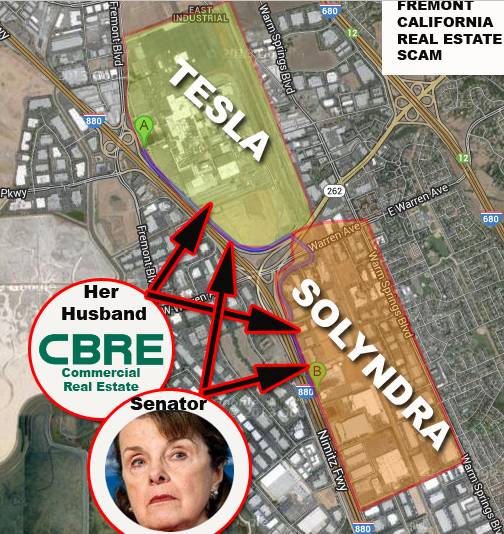California politicians to don donor logos if ballot initiative succeeds
Shock political campaign aims to make legislators’ corporate and union sponsors known to voting public
Altria. Chevron. AT&T. These names may seem like a random assortment of Fortune 500 and blue-chip U.S. corporations. But they are among the donors that gave the most money to California state Assemblyman William Brough.
Of course, Brough is far from alone in accepting the financial help of corporate America when it comes to fighting elections. But if a seemingly outlandish proposal by a local California lawyer gets onto the ballot, he will not be able to stay shy about those donating to his cause.
Nor will any other politician in the state. John Cox, an activist businessman, wants to require legislators to walk into their assembly chamber wearing the logos of their biggest sponsors.
The shock tactic aims to find its way onto the ballot for November, a goal that will be made possible by gathering 365,880 signatures. That effort is already under way, after the state attorney general approved the text of the petition earlier this month. The nonprofit running the campaign, California Is Not for Sale, has committed $1 million for the project.
The group is also traveling the state with life-size cutouts for all 120 members of the California Senate and Assembly and one for Gov. Jerry Brown. Each cardboard politician’s torso is adorned with his or her most significant backers, like NASCAR sponsors on a driver’s racing suit.
“This will be on the ballot in 2016. That is our guarantee,” the organization says on its website. “The only question is whether Californians will vote ‘yes’ or ‘no.’ We think that it will be ‘yes’ by an overwhelming majority.”
The specific language of the petition mandates “stickers or badges displaying the names of their 10 highest campaign contributors” yet leaves the specifics to the California Fair Political Practices Commission.
Ultimately, the purpose of the gimmick is to call attention to the role of vast sums of money in financing campaigns, at the state, local and federal levels. By increasing the transparency behind who has paid for politicians’ races, voters theoretically would get a better idea about what happens to bills behind the scenes.
‘Corrupt, broken, stupid’
Cox, who made his money in real estate, said he hopes to ride the coattails of the Bernie Sanders and Donald Trump campaigns, which he believes have shown immense voter frustration with the campaign finance system and intense corporate lobbying.
“This initiative hits home for Californians. There are better ways of maintaining the electoral structure,” Cox told Al Jazeera. “What you have is a bunch of people who want something from government, so what they do is fund and staff the campaigns of politicians.“
He cited the example of Walmart, which he said is a major funder buying protection: “Many people in the legislature don’t like Walmart because it’s nonunion and would pass restrictions on Walmart opening up stores.” He continued, “So Walmart provides funding for a bunch of politicians as a defensive measure.”
The biggest donors to statewide races in California for the 2014 election cycle were Kaiser Permanente and Anthem Blue Cross of California, pulling $23 million and $19 million, respectively. For the state races, Democrats actually received almost three times as much ($145 million) as Republicans ($52 million). Much of the health care lobbying was around Proposition 45, which would have required insurance companies to provide public notice when raising rates.
Cox went on to fault a wide range of special interest groups rivaling big business with their spending, from public sector unions and prison guards to “home health workers lobbying for benefits, a higher salary and better work conditions.”
Just an ‘interesting’ idea?
After the gubernatorial and other executive positions in Sacramento, the leading recipient of donations in Assembly races was Sharon Darlene Quirk-Silva, who lost in the 5th District but received $3.7 million, according to FollowTheMoney.org, which is run by the National Institute on Money in State Politics.
Senate candidates Janet Nguyen and Luis Chavez both spent in excess of $3 million. Such information is publicly available since it must be filed by candidates with the California Secretary of State Political Reform Division. But being required to wear logos of corporate backers would be a whole new ballgame.
Edwin Bender, the executive director of the National Institute on Money in State Politics, which is based in Helena, Montana, described the Cox effort as “interesting idea, certainly, as the tide, hue and tenor over the debate on campaign finance increases during the [2016] election cycle.”
“It’s the kind of thing people organize around,” he said. “But I don’t see it having any real serious effect on politicians’ behavior.”
“You give money to incumbents. If not, you give to the winner or one who’s not the incumbent to influence people who are going to be making public policy decisions,” he said. “That is a truth, whether it is California, Montana or South Carolina.”
But legal challenges could eventually bring California Is Not for Sale to state court over First Amendment issues, even after a successful referendum obliging funding disclosure. Legal experts see any number of potentially troublesome aspects, including enforcement of compulsory speech, vague wording or due process.
Regardless, the property mogul behind the initiative is hopeful.
“It’s meant to capture the imagination of California voters,” Cox said, “to really understand what is going on in their state capital.”
Find Al Jazeera America on your TV

$1.6B Powerball jackpot goes to three winners in three states
The largest ever jackpot prize became a national fascination; identities of winners are still unknown

Chinese tycoon buys US film studio
Dalian Wanda Group, a Chinese conglomerate, purchases US film studio Legendary Entertainment for about $3.5 billion

A grim day for unions could come with opportunities
No matter the outcome, Friedrichs v. California Teachers Association should push unions to reform their finances

Losing the fight against Big Data
California’s formerly strong stance on consumer protection is being stifled by the tech lobby and electoral changes

The Calderon dynasty: 30 years of political power
Al Jazeera’s Investigative Unit examines the Calderon family’s ups and downs since its patriarch’s first big win
Editor’s Picks
- Subscribe
- RSS




Excellent idea! However, the compulsory speech issue might prevent this bill from going through,but there is an easy fix:
Many classes of government employees are required to wear official uniforms; simply require this class of government employees to wear uniforms and simply specify in protocol that the logos and other insignia are part of their official uniform. Problem Solved!






















Start the Conversation